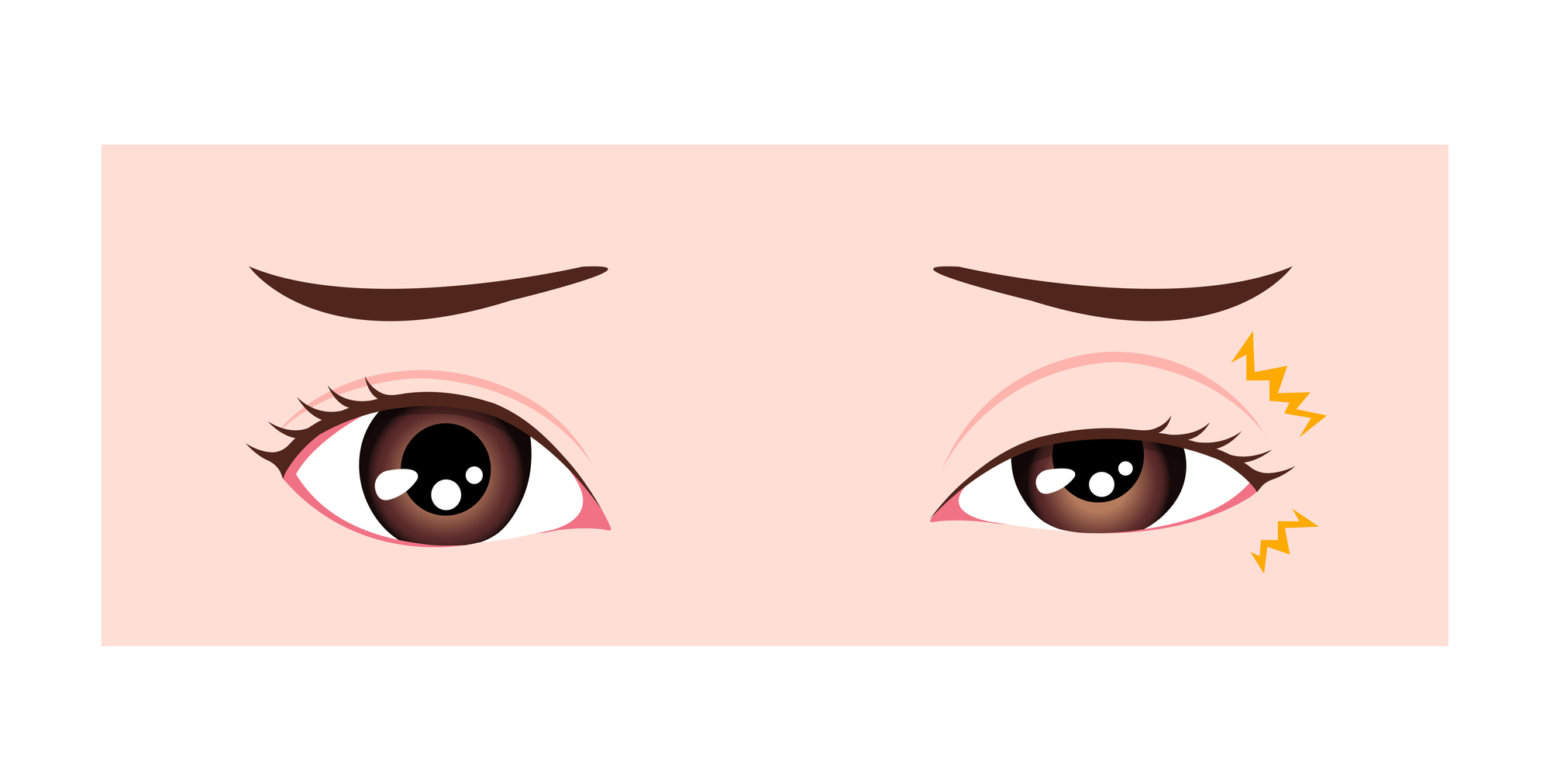Updated on June 13, 2025
Eye Twitching Causes and Relief


Vision Center is funded by our readers. We may earn commissions if you purchase something via one of our links.
You’re sitting at your desk, and your eyelid won’t stop jumping. Eyelid twitching can be distracting—and even worrying—but the good news is that most eyelid twitches are harmless.
Understanding what causes your twitching and when you should see an eye doctor can help you find relief and put your mind at ease.

What Causes Eyelid Twitching?
Most eyelid twitches (called eyelid myokymia) are benign, brief contractions of the eyelid muscles. They're harmless, often triggered by stress or fatigue, and typically stop on their own.
However, some twitching indicates other conditions:
- Blepharospasm. A neurological condition causing frequent, forceful spasms of both eyelids.
- Hemifacial spasm. Twitching affecting muscles on just one side of your face, typically due to facial nerve irritation.
Fortunately, most twitches are minor and temporary, needing no special treatment.
What Triggers Eyelid Twitching?
Your daily habits and environment often trigger eyelid twitching. Reducing these factors can significantly help manage and prevent the problem:
- Stress. Raises nerve activity, making twitches more frequent.
- Lack of sleep. Fatigue can lower your twitch threshold, leading to involuntary contractions.
- Caffeine intake. Excess caffeine overstimulates nerves, increasing muscle twitches.
- Digital eye strain. Prolonged screen time reduces blinking, causing eye dryness and twitching.
- Dry eye. Irritation from dryness prompts frequent blinking and muscle spasms.
Managing these triggers often resolves mild eyelid twitching quickly.
When Should You See an Eye Doctor
If your twitching isn't going away, pay attention to these important signs indicating you might need a professional evaluation:
- Persistent twitching. If the twitch lasts longer than one to two weeks without improvement, it’s worth getting checked.
- Forceful eyelid closure. Strong spasms that force your eyelids closed may signal a neurological condition.
- Vision changes. Any associated vision disturbances, such as blurred or double vision, require immediate assessment.
- Facial weakness or twitching in other muscles. If other facial muscles start twitching or feel weak, this could indicate a more serious nerve issue.
If you experience any of these red flags, don't hesitate to contact your eye doctor promptly for a thorough evaluation.
Medical Treatment Options for Stubborn Eye Twitching
When home remedies aren’t enough, your eye doctor can recommend effective medical treatments tailored to your condition:
- Botulinum toxin injections (Botox). The most common and effective treatment, these injections temporarily weaken twitching muscles, providing relief for up to three months.
- Oral medications. Medicines like clonazepam can partially reduce spasms, particularly if stress or anxiety triggers your twitching.
- Microvascular decompression. For hemifacial spasm, surgery can permanently relieve nerve compression causing the twitch.
- Oculoplastic myectomy. Surgical removal of problematic eyelid muscles is a last-resort option for severe blepharospasm cases resistant to other therapies.
Home Remedies for Eye Twitching
Many eyelid twitches respond well to simple self-care steps you can easily try at home:
- Rest and hydrate. Aim for seven to eight hours of quality sleep nightly and stay hydrated throughout the day.
- Cut back caffeine. Limit caffeine intake to two cups of coffee or tea daily to reduce nerve overstimulation.
- Screen breaks. Follow the 20-20-20 rule: every 20 minutes, look at something 20 feet away for at least 20 seconds.
- Artificial tears. Regularly use preservative-free lubricating eye drops to ease dryness-induced twitching.
- Warm compress. Applying a warm compress for five to 10 minutes relaxes eyelid muscles and reduces spasms.
Remember, most eyelid twitches are harmless and resolve with minor lifestyle adjustments. If you have persistent concerns or symptoms, the next best step is professional guidance.
Find an eye doctor near you to ensure your eyes stay healthy and comfortable.
In this article
7 sources cited
Updated on June 13, 2025
Updated on June 13, 2025
About Our Contributors
Lauren, with a bachelor's degree in biopsychology from The College of New Jersey and public health coursework from Princeton University, is an experienced medical writer passionate about eye health. Her writing is characterized by clarity and engagement, aiming to make complex medical topics accessible to all. When not writing, Lauren dedicates her time to running a small farm with her husband and their four dogs.
Dr. Melody Huang is an optometrist and freelance health writer with a passion for educating people about eye health. With her unique blend of clinical expertise and writing skills, Dr. Huang seeks to guide individuals towards healthier and happier lives. Her interests extend to Eastern medicine and integrative healthcare approaches. Outside of work, she enjoys exploring new skincare products, experimenting with food recipes, and spending time with her adopted cats.

